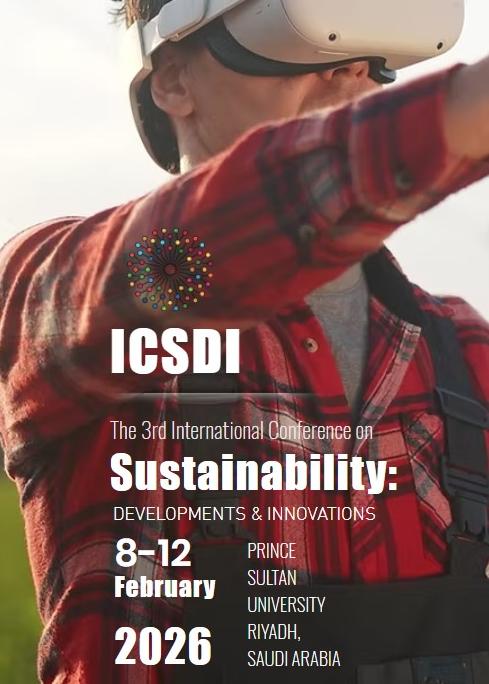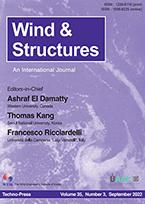Workshop in Consumer Culture Theory - University of Aveiro 29th and 30th September
WCCT 2021
- URL: https://www.ua.pt/en/firstworkshopincct
- Event Date: 2021-09-29 ~ 2021-09-30
- Submission Date: 2021-07-21
- Location: Aveiro, Portugal
Consumption in Uncertain Times:
Desire, Identity and Self-Gifts
Pandemics afflict societies through the established relationships that people have created with the environment, others and, themselves. A critical situation pushes human behaviour towards different directions, some of them transient, others inevitable. The COVID-19 outbreak has brought about a paradigm shift in many aspects of consumer culture, including personal identity, social interactions and affiliations, and behaviours in the commercial marketplace.
Measures of complete and partial lockdown triggered significant changes in our social and consumption values, habits, and desires. Due to the closure of stationary retail stores and consumers' impossibility of pursuing their usual leisure activities, online shopping has become the only means for consumers to deal with consumer desire's intense and powerful emotions. Many consumers craved hedonistic products and services to satisfy the need for self-indulgence and personal pampering (Gopalan, 2020; Koch et al., 2020).
According to Belk et al. (2003), consumer desire is a passion born between consumption fantasies and social situational contexts. The self-reward theme of many self-gifts may well share something in common with consumer desire in terms of providing a moral rationalization for consumption (Belk et al., 2003).
In marketing literature, Tauber (1972) proposed that the search for “self-gratification” could be a motive for buying oneself “something nice.” During the late-eighties and nineties, references to self-gifts or to “giving to oneself” in Consumer Behaviour were addressed by several authors (Luomala & Laaksonen, 1999; Mick, 1986; Sherry et al., 1993, 1995; Sherry & McGrath, 1989; Williams & Burns, 1994). The authors (Mick & Demoss, 1990) defined self-gifts as personally symbolic self-communication through special indulgences that tend to be premeditated and highly context-bound.
As Mick & Demoss (1990) put it, A good self consoles the real self when uncontrollable factors thwart hopes or disrupt life. Conversely, more recently, research indicates that self-gifts bought in some severe contexts seem to provide a lasting therapeutic effect linked to their symbolic value while justifies a sense of deservedness (Heath et al., 2015).
While representing a plurality of distinct theoretical approaches and research goals, Consumer Culture Theory (CCT) researchers share a common theoretical orientation toward the study of cultural complexity that links their respective research efforts (Arnould & Thompson, 2005). Understanding self-rewards as achieved from a CCT analysis is essential to our understanding of marketing/consumer research in today’s times. Given that so little is known about self-gifts in uncertainty scenarios, the overriding goal of this workshop is to promote a discussion both conceptual and empirical about the value of self-gift in consumer identity work.
Accordingly, we encourage submissions that embody the spirit of Consumer Culture Theory as informing and contributing pragmatic to the topic!
------
Confirmed Keynotes:
- Professor Søren Askegaard, University of Southern Denmark, President of the CCT Consortium
- Professor Dannie Kjeldgaard, University of Southern Denmark
- Professor Niklas Woermann, University of Southern Denmark
- Professor Teresa Heath, University of Minho
- Professor Helena Nobre, University of Aveiro
The organisation will emit Certificates of Participation, and the accepted submissions will be part of the workshop Book of Abstracts (with ISBN).
Desire, Identity and Self-Gifts
Pandemics afflict societies through the established relationships that people have created with the environment, others and, themselves. A critical situation pushes human behaviour towards different directions, some of them transient, others inevitable. The COVID-19 outbreak has brought about a paradigm shift in many aspects of consumer culture, including personal identity, social interactions and affiliations, and behaviours in the commercial marketplace.
Measures of complete and partial lockdown triggered significant changes in our social and consumption values, habits, and desires. Due to the closure of stationary retail stores and consumers' impossibility of pursuing their usual leisure activities, online shopping has become the only means for consumers to deal with consumer desire's intense and powerful emotions. Many consumers craved hedonistic products and services to satisfy the need for self-indulgence and personal pampering (Gopalan, 2020; Koch et al., 2020).
According to Belk et al. (2003), consumer desire is a passion born between consumption fantasies and social situational contexts. The self-reward theme of many self-gifts may well share something in common with consumer desire in terms of providing a moral rationalization for consumption (Belk et al., 2003).
In marketing literature, Tauber (1972) proposed that the search for “self-gratification” could be a motive for buying oneself “something nice.” During the late-eighties and nineties, references to self-gifts or to “giving to oneself” in Consumer Behaviour were addressed by several authors (Luomala & Laaksonen, 1999; Mick, 1986; Sherry et al., 1993, 1995; Sherry & McGrath, 1989; Williams & Burns, 1994). The authors (Mick & Demoss, 1990) defined self-gifts as personally symbolic self-communication through special indulgences that tend to be premeditated and highly context-bound.
As Mick & Demoss (1990) put it, A good self consoles the real self when uncontrollable factors thwart hopes or disrupt life. Conversely, more recently, research indicates that self-gifts bought in some severe contexts seem to provide a lasting therapeutic effect linked to their symbolic value while justifies a sense of deservedness (Heath et al., 2015).
While representing a plurality of distinct theoretical approaches and research goals, Consumer Culture Theory (CCT) researchers share a common theoretical orientation toward the study of cultural complexity that links their respective research efforts (Arnould & Thompson, 2005). Understanding self-rewards as achieved from a CCT analysis is essential to our understanding of marketing/consumer research in today’s times. Given that so little is known about self-gifts in uncertainty scenarios, the overriding goal of this workshop is to promote a discussion both conceptual and empirical about the value of self-gift in consumer identity work.
Accordingly, we encourage submissions that embody the spirit of Consumer Culture Theory as informing and contributing pragmatic to the topic!
------
Confirmed Keynotes:
- Professor Søren Askegaard, University of Southern Denmark, President of the CCT Consortium
- Professor Dannie Kjeldgaard, University of Southern Denmark
- Professor Niklas Woermann, University of Southern Denmark
- Professor Teresa Heath, University of Minho
- Professor Helena Nobre, University of Aveiro
The organisation will emit Certificates of Participation, and the accepted submissions will be part of the workshop Book of Abstracts (with ISBN).














